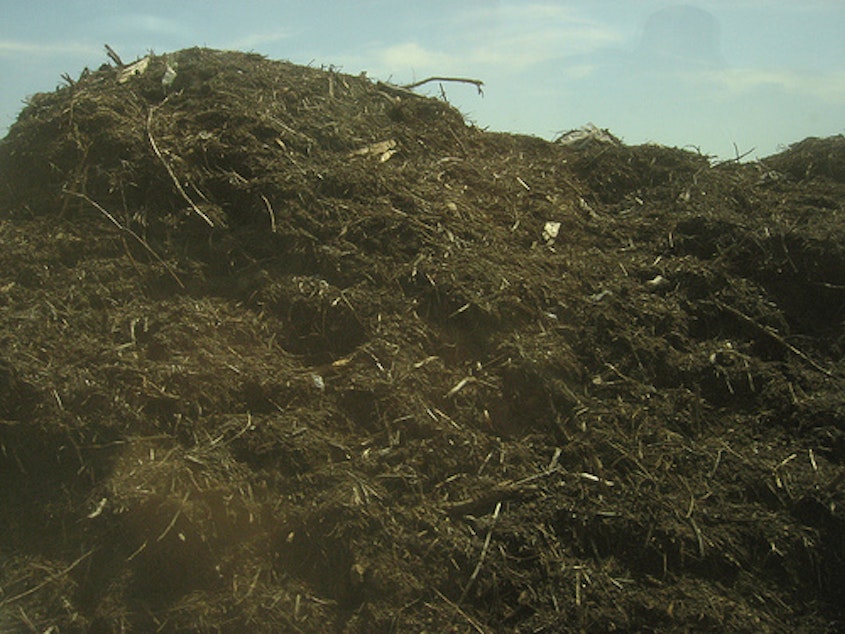Seattle Compost Is A Hot Potato

Seattle city council members are scheduled to vote Monday on legislation that could change where the city's food and yard waste ends up. But the latest plan is raising a stink east of the Cascades.
The city of Seattle sends its food and yard waste to be recycled into compost at two plants operated by a company called Cedar Grove. One plant is in Everett the other is in Maple Valley.
Marysville resident Mike Davis lives near the Everett plant. He said the smell from the plant has ruined the quality of life in the neighborhood. “It’s rank," he said. "It will stop you from using your yard, your deck, and it will force you either inside or out of the area. It’s truly obnoxious.”
The odor made Davis so mad that he started an opposition group called Citizens For A Smell Free Snohomish County. And he organized one of the several lawsuits against Cedar Grove.
Cedar Grove did not respond to multiple interview requests.
But in the past, company officials have said that the odor in Snohomish County might not be coming from their plant. They've said the stinker could be Marysville’s sewage treatment plant. They’ve offered to pay for an independent study to determine who is responsible for fouling the air.
In the wake of the controversy, the company decided not to renew its contract with the city of Seattle.
That means the city has to consider other options. So it’s looking at contracts with two other companies. Under those proposals, the food and yard waste would instead go to an existing facility near Stanwood and a proposed plant in Kittitas County.
But now that idea has Kittitas County residents holding their noses. Carl Nelson is one of them. He’s also a commissioner for a Kittitas County water district.
Nelson drove two hours to Seattle last week to urge city council members to vote against the new plan. “We would have a facility that works 24/7," he said. "With lights brightly over the hill, obliterating the night sky, sounds of machinery, the smell of putrid waste, and the damage to the scenic beauty up here, it would be gut wrenching."
The Kittitas plant is not a done deal. It’s not clear whether it will even get the necessary permits.
If it doesn’t, the proposed legislation would allow for the waste to go to a different Kittitas County site. And it would also let the waste boomerang back to Cedar Grove’s facilities in Maple Valley and Everett.
Marysville resident Mike Davis said if that happens, he wants the stinky problem solved. And he said it raises a larger question about being neighborly.
“Seattle kind of acts like, 'well it’s not our fault, we just pay a contractor,'" he said. "Well, that’s not really true in my opinion. You’re responsible for what happens to your trash in my opinion. You have to make sure that the person that’s handling it, or the company that’s handling it, does it responsibly."
UPDATE: March 24, 2013, 12:00 p.m.
PacifiClean, one of the companies seeking a contract to handle Seattle’s food and yard waste, is proposing a change about where its Kittitas County plant would be located.
Initially , the company said it was seeking to build it at a location in the Elk Heights area. But after public outcry at meetings in Cle Elum and in Seattle, the company said it would withdraw its permit application for Elk Heights and review three other locations not in the Elk Heights area.
The company said the new sites “should eliminate the environmental and logistical impacts.” A company spokeswoman said PacifiClean does not expect that change to alter the proposed contract with the city of Seattle. She said company officials plan to testify before the city council’s meeting on Monday.

